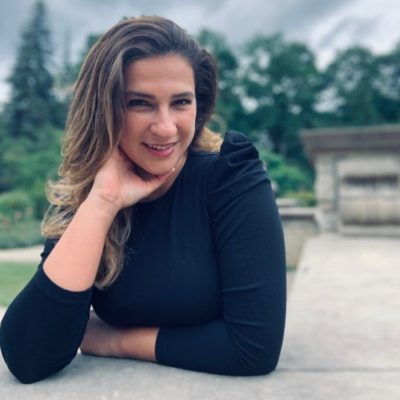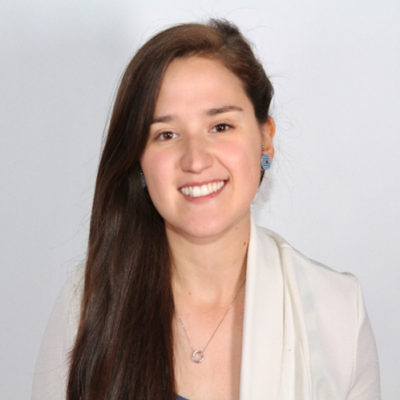Our graduate students have gained valuable and meaningful experience in the field, applying their research to the benefit of various communities around the globe.

Lara Farah
Lara Farah
Lara completed her International Development Studies Master’s Degree at York University in 2020. She is currently conducting a PhD at York’s Department of Sociology.
Since the late 1940s, millions of Palestinians have been victims of a prolonged process of displacement, with many seeking asylum in the neighbouring country of Jordan. While most of the over two million Palestinian refugees in Jordan were granted full citizenship upon arrival, nearly 170,000 have remained stateless due to the historical complexities of the West Bank occupation. This has resulted in a two-tier status system, in which a segment of Palestinian refugees is unable to avail themselves of full citizenship rights.
As a Syrian national who has spent most of my life in Jordan, I have become well acquainted with the complexities of refugee life there, and this awareness has guided my research interests. The focus of my inquiry was on comparing the ways in which youth from these two status groups—de jure stateless and fully naturalized—exercise agency in negotiating poverty-related constraints and enhancing their livelihoods. The ethnic, cultural and religious similarities between the two refugee groups—legal status being the primary difference—allowed me to focus on variations in the way either group exercised agency. My research was largely qualitative in method, and the fieldwork consisted of semi-structured interviews with youth from the two groups. Research participants were encountered mainly through snowball sampling.
One of the main challenges I faced in conducting fieldwork was the reluctance of many to participate, due to the politically sensitive nature of the topic. I had assumed that as a native of the region, with ample knowledge of my research subjects and a variety of networks and access points available to me, it would be a straightforward process to locate an abundance of participants. As this did not prove to be the case, I had to adjust my design and focus on a smaller number of high-quality, in-depth interviews. In introducing myself to potential participants, I sought to be as transparent as possible on the nature of my project to empathize with them and stress the ways in which my own background and positionality were aligned to some degree with theirs.
Prior to entering the International Development Studies (IDS) MA program at York, I had completed a Master’s degree in Spatial Planning in Jordan. Despite certain similarities in the subject matter of the two programs, I noticed a key difference in approach. My previous studies had been focused primarily on identifying successful development models which could be applied locally. The IDS program at York invited us to think critically about the very concept of development and to place value in participatory, grassroots-based approaches emerging from within the communities we study. These are valuable insights I hope to take with me as I continue my research at the PhD level.
Natalia Uribe
Natalia completed her Master’s degree in International Development Studies at York University in 2020.
Six decades of violent conflict in Colombia have resulted in the mass displacement of eight million people from towns and villages across the country to the urban centers. Amongst the growing population of desplazados (the displaced), women have come to play a crucial role in grassroots organizing and mobilizing around existing and emergent legal frameworks for obtaining justice. As a native of Bogotá, I grew up with an awareness of the ongoing conflict between paramilitary and guerilla organizations, which had reached a boiling point near the turn of the millennium. This background was influential in defining my research interests for the International Development Studies (IDS) program.
At the time of conducting my fieldwork in 2018, two years had passed since the signing of the much-heralded peace accord in Colombia, and there was optimism as to its potential. On paper, the transitional justice framework consisted of fairly extensive reparative measures for victims, from monetary compensation to land restitution, medical and psychological support, and symbolic reparations. The overarching assumption guiding the framework was that past abuses could be “repaired” individually, like checkmarks on a list, through a top-down state-directed process of post-conflict transition—a presumption that subsequent events have rendered problematic. The focus of my research, conversely, was on highlighting the role of women’s agency and legal mobilization in striving for transformative justice and for providing opportunities for autonomous decision-making in the face of a largely unresponsive state.
My four months of fieldwork brought me in contact with numerous victims of violent conflict and displacement. Yet many of these same women were at the forefront of mobilizing and attending to the complexities of creating and registering their own legal entities to that end. They were frequently also breadwinners and responsible for the care of their children.
Despite my acquaintance with the context and history of the conflict, the fieldwork was not without its challenges. Many of the women I encountered had initial reservations as to my motives. The work of rapport building thus entailed frequent visits for coffee or lunch with organizers or stopping by the offices of their organizations, which often doubled as their homes. Fortunately, I was also able to take an internship at the Instituto Latinoamericano para una Sociedad y un Derecho Alternativos (ILSA – the Latin American Institute for Alternative Justice and Society), which offers pro bono legal services for transitional justice cases. This proved to be an excellent starting point for making first contact, and I was eventually able to interview 23 women from 15 separate organizations.
One of the outstanding aspects of the IDS program is that it attracts researchers with a genuine interest in helping solve real-world problems. I feel my time in the program and my experiences in the field have given me a more rich and critical perspective on what this might entail. Often it involves listening to and amplifying the voices of those already generating solutions within their local context, rather than attempting to apply predefined development formulas. The preliminary coursework provides conceptual tools for guiding one’s inquiry, but the field has a way of challenging assumptions, and it is essential to approach it prepared to listen and absorb the full experience.

Natalia Uribe

Learn More
The Graduate Program in Development Studies at York is an exciting environment to pursue innovative, socially engaging, career-ready education. Contact our Graduate Program Assistant to learn more.
